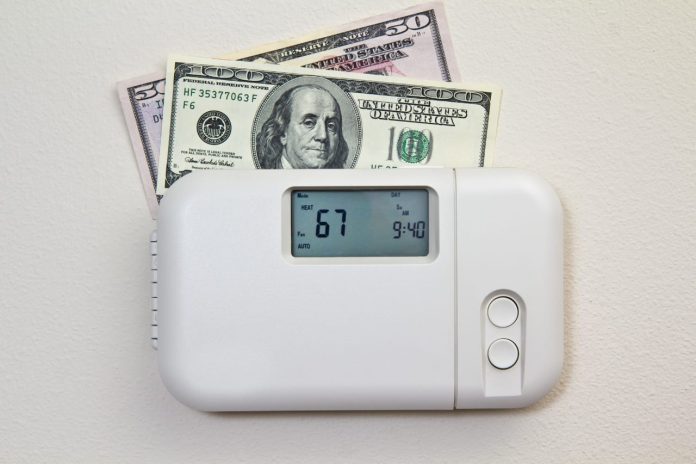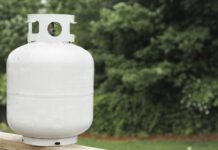With the cost of natural gas rising steeply, some are predicting that this could be the most expensive winter in 13 years. It’s only natural that our thoughts turn to how we can heat our homes for less.
Saving money on our heating bills is also a great way to manage our finances more effectively. But what are some simple things that we can do that will make a difference?
Let’s take a look at 5 tips for saving on your heating bill this winter.
1. Reduce Heat Loss From Your Home
One of the simplest ways to reduce your heating bill is to insulate your home. A well-insulated home loses less heat. That means that your heating system uses less energy to heat it to the same level.
There are a couple of approaches to this. One involves major work to add extra insulation panels to the house.
This can involve insulating walls, floors, and roof spaces. At times, there may be government grants or funding available if you want to go down this route.
There are also simple things that you can do that do not need to cost a lot of money.
Draft-Proofing Windows and Doors
Lots of heat can simply flow out of the house through your window and door frames. They can also let in lots of cold air, which makes your heating system have to work harder. This sends your energy bill sky high!
Caulk is your friend. You can go around both the inside and outside of your home and find gaps and cracks that heat can seep out of. A little caulk in these gaps can help to seal them.
If you have larger gaps, expanding foam may help. If your windows themselves are drafty, consider getting window insulating strips.
These self-adhesive strips simply stick onto the windows themselves and provide a tight seal when the windows are closed.
Doors can be insulated using draft excluders. You can also add similar self-adhesive strips around door frames. This will help to provide a snug fit around the door, keeping warm air inside.
2. Turn Down Your Thermostat
This simple trick could save as much as 10% on your energy bills. You should look to reduce it by 5-7 degrees for around 8 hours a day. These could be hours that you are out of the house anyway.
Technology can also help you with this. Some modern heating systems allow you to zone your house. This means that you don’t have to heat parts of the house that you are not using.
Smart thermostats are available from heating services and utility companies. You can program your thermostat so the heat only comes on when you need it. There are even ones that connect to Wi-Fi, allowing you to control the heat from afar.
3. Upgrade to an Air Source Heat Pump
In most parts of the world, we’re used to heating our homes using a furnace, or an HVAC system. However, there is now an alternative to both – an air source heat pump.
An air source heat pump warms your home with heat extracted from outside your house. It brings the heat of the sun indoors. In many homes, this then runs an air-to-water heat pump.
This warms the water and pumps it around your home. The water then heats large radiators or underfloor heating systems.
The advantage of this system is that once installed, it uses less energy than traditional heating systems. It also has a longer average lifespan. In some countries, it may qualify for government grants.
Learn more about the air source heat pump cost and how much it would save you in the long term. If you invest in this system, you may be laughing all the way to the bank for many winters to come!
4. Seal Your Fireplace
If your home has a fireplace, it can be a great alternative to home heating! Gather the family round at night, throw on some logs, and watch your energy bills fall.
A word of warning – take precautions if you haven’t used it for a while. Chimneys can get clogged, so get a chimney cleaner in to inspect it and give it whatever TLC it needs.
But if you have a fireplace that you don’t use, it can be a big drain on your home heating. That’s because it basically acts like an open window year-round. It draws heat out of the house and brings cold air in.
If you don’t use your fireplace, it’s a good idea to plug and seal the chimney flue. Or if you have a fireplace that you use from time to time, keep the damper closed when you are not using it.
5. Keep Your Heating System Well Maintained
Like any other system, your home heating needs regular maintenance! Call in a heating company as often as the manufacturer recommends. That’s often once a year at least.
In some heating systems, junk and dirt can build up in the system. This can make it much less efficient, meaning that you have to spend more on your heating bill. Whether it’s an HVAC or furnace system, the same rules apply.
Having your system maintained and cleaned can help to keep it running smoothly. In turn, this can help to reduce your heating bills.
Watch Your Heating Bill Fall With These Tips!
No one wants to live in dread of their heating bill arriving. If you follow these 5 simple hints and tips, you could be facing much lower bills. By maintaining your home heating properly, you can also avoid hefty repair bills down the line.
We hope that you’ve enjoyed this article – and we’ve got plenty more for you! Head over to our Home section, for more great insights into how to live well for less.










